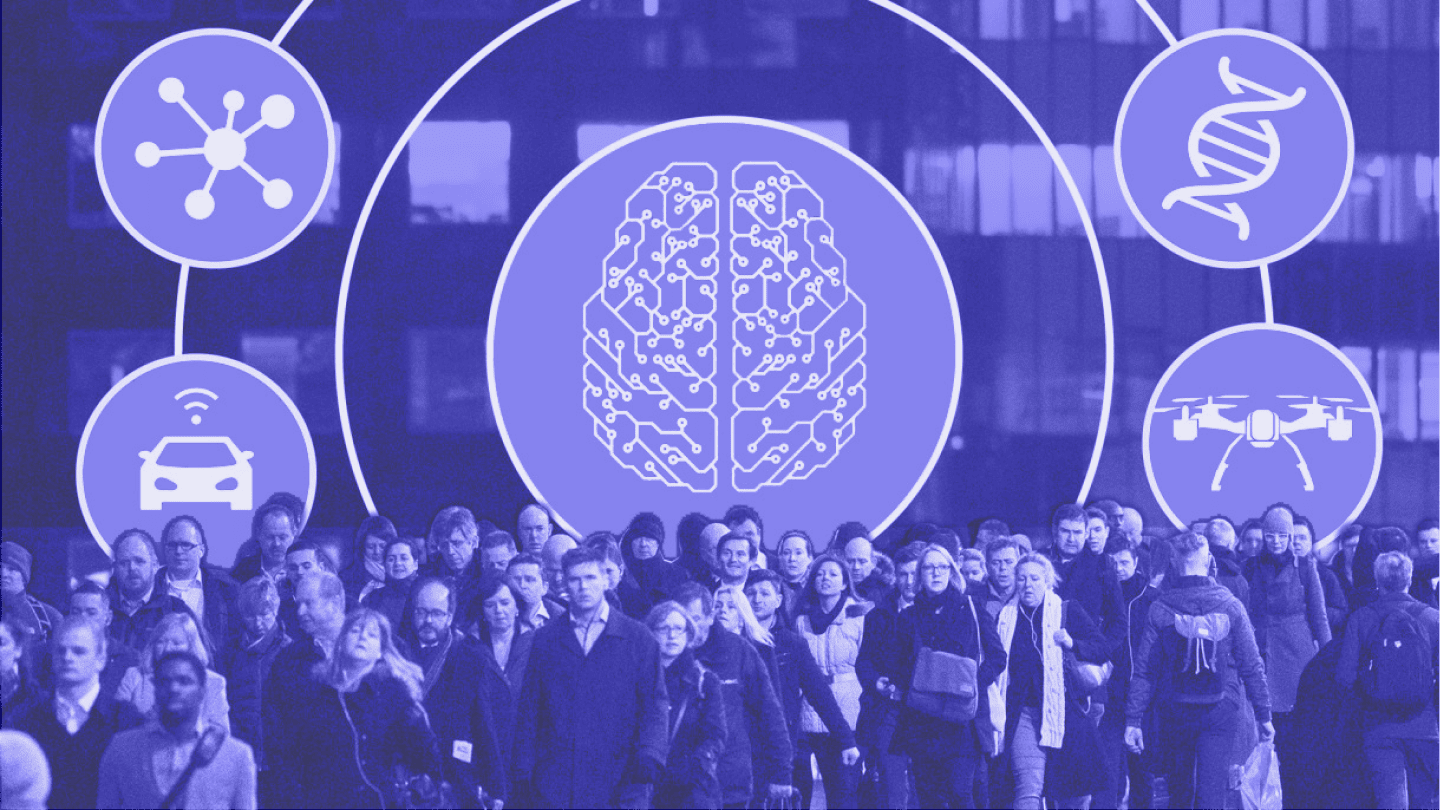In 2021, the world saw an explosion in the Non-Fungible Tokens or NFT space. Unlike others, these tokens gave birth to a digital revolution and made a massive change all over the internet.
Famous for their use in art and other media content, NFTs have evolved far beyond that. According to an estimate, the NFT marketplace reached a massive $40 billion in 2022. Not to mention, the unique aspects of NFTs’ authentic nature, ownership, and blockchain construct have propelled their usage in many unusual sectors.
Let’s explore the potential of NFTs and see how they’re changing the world in some of the most unexpected and unusual ways.
In this article:
What are NFTs?
Remember trading Pokemon cards when you were young? You always traded a card that was different than what you had. This is, generally speaking, an oversimplification of what non-fungible tokens (NFTs) are or how they work.
You can trade Bitcoin for another cryptocurrency, but NFTs are unique, and you can only get a different unique thing for trading your NFT. Moreover, most NFTs work on the Ethereum blockchain, which keeps track of who’s holding and trading NFTs. This means there can only be one copy of your NFT, keeping your transaction unique and secured using smart contracts.
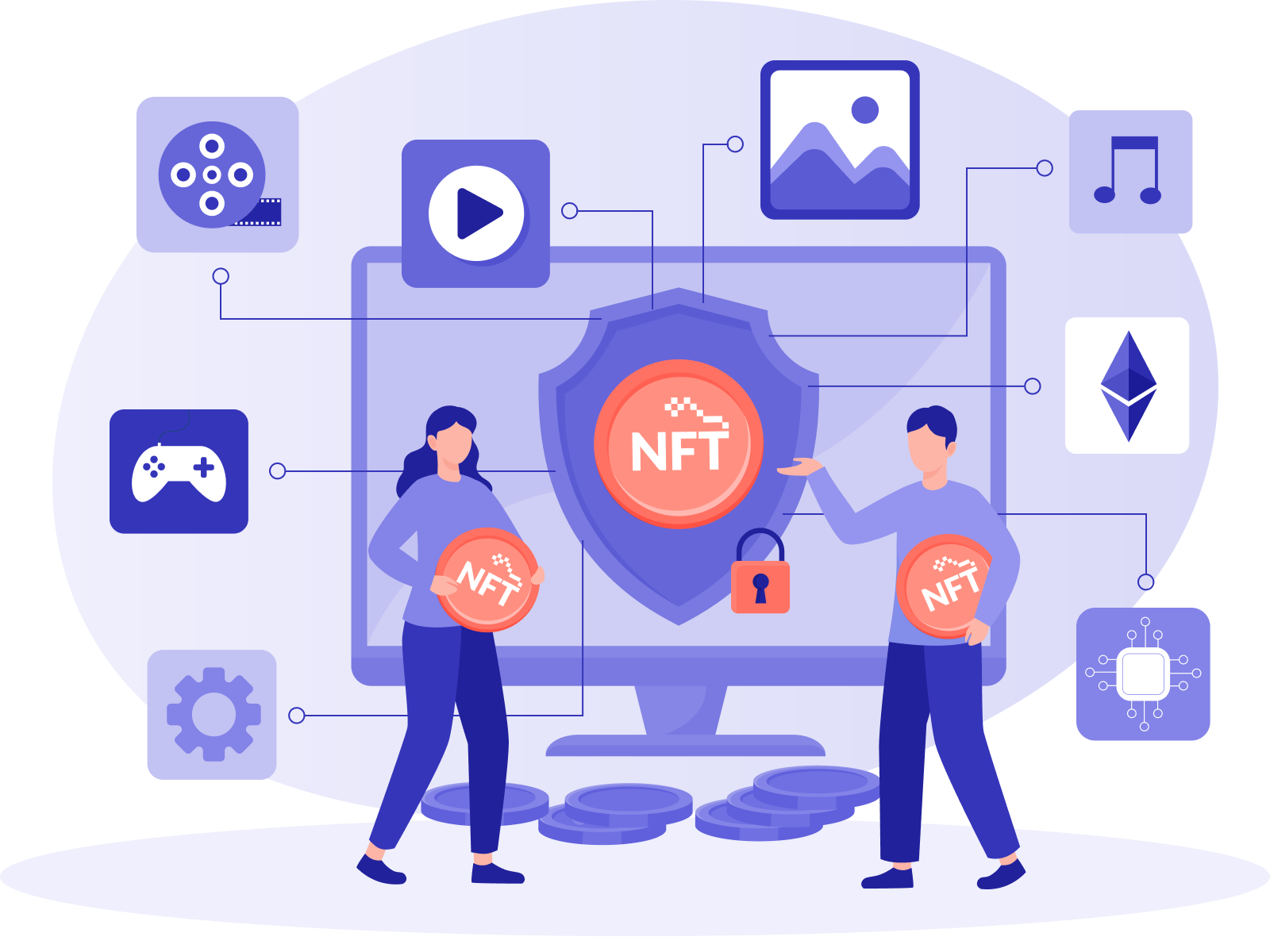
Basically, NFTs enable creators to earn royalties, prove their ownership, and digitize physical content without needing a third-party service. It also allows NFT owners to display and own rare pieces of art and assets that can diversify their portfolio based on the total supply and demand.
All in all, NFTs are awesome and can be used for many things. However, today we’re looking at a few cases you might not have thought about before.
10 unusual NFT cases
Ready to step into a reality where owning digital real estate or immortalizing your concert experience on the blockchain is the norm? How about managing your health records or verifying your identity using digital assets?
The frontier of non-fungible tokens (NFTs) is expanding, and we're here to decode how NFTs could shake up your life as you know it!
1. NFTs in real estate: virtual worlds and property ownership
Buying a plot of virtual land, building a skyscraper, and then trading it for a hefty sum — all from the comfort of your couch — feels like a dream. However, that's what NFTs and blockchain technology are offering to the real estate sector — secure, transparent, and simplified digital NFT transactions.
From virtual worlds like Decentraland to high-end properties in your real life, NFTs symbolize ownership rights like never before. People can now buy, sell, and trade in digital properties or virtual real estate without worrying about bad actors targeting them online.
Companies like Geniusee are making it possible with blockchain software development services that render traditional intermediaries obsolete, making transactions faster, safer, and more efficient.
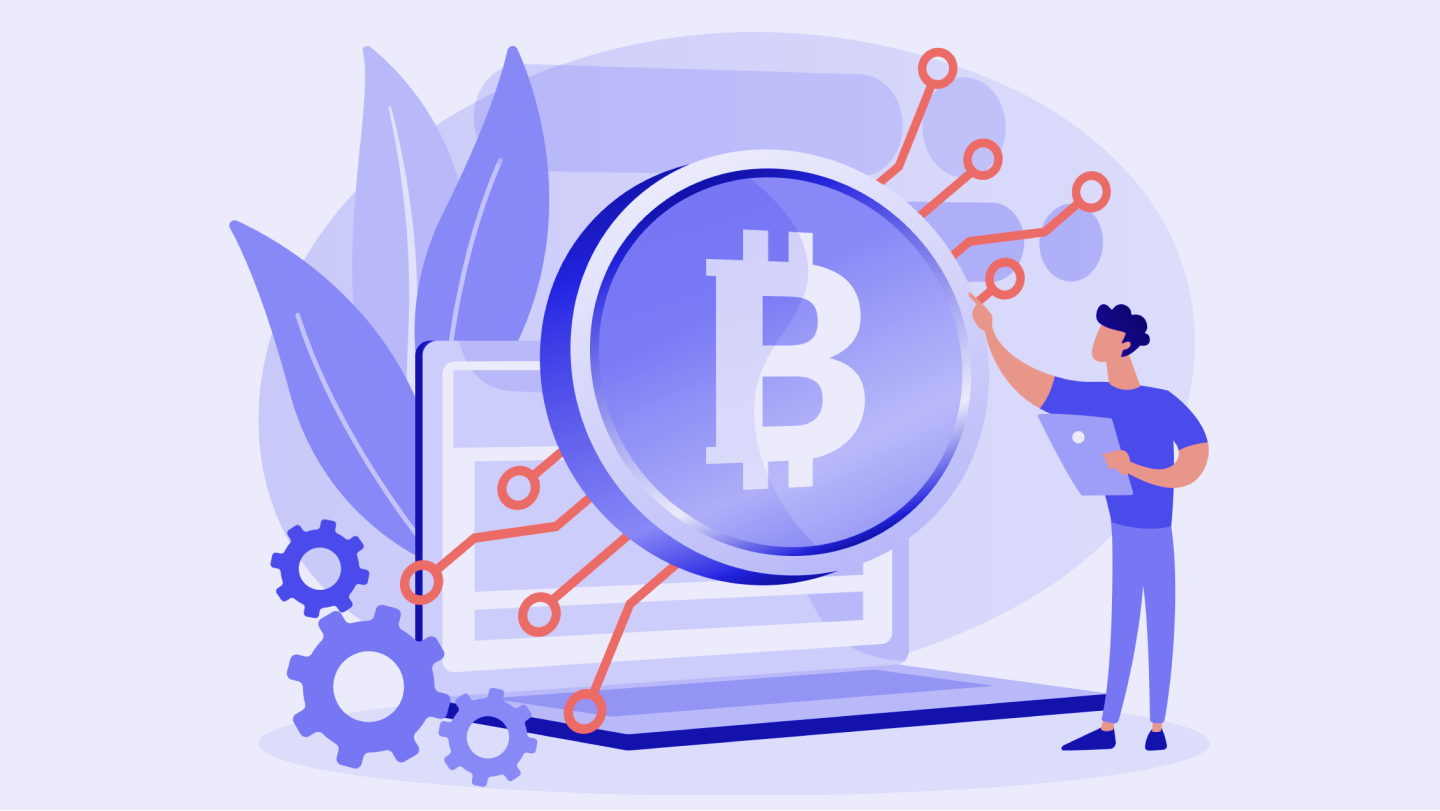
You may be interested
10 Unusual Blockchain Usage Cases — Beyond Cryptocurrency
Discover 10 unexpected and innovative uses of blockchain beyond cryptocurrency in this article.
Read the whole thing2. NFTs for digital identity: identity verification and personal data security
Ever been a victim of identity theft? Not fun, is it? Say hello to NFTs for digital identity verification. With NFTs, your personal data is tokenized, securing it from unauthorized access.
For example, platforms like Civic use blockchain to verify and secure your identity. It's like a virtual passport but more secure, meaning you control your data, not some faceless corporation.
3. NFTs in journalism and publishing: restriction-free blogging
Looking for a way to get around geo-restrictions and publish articles and blogs freely on the internet? Well, NFTs have you covered. Bankless, a popular crypto newsletter platform, launched its own NFT collection called “Bankless Badge,” giving holders access to premium content and events instantly.
Moreover, NFTs provide creators with a way to sell their work directly to the consumer. This means you can bypass using a traditional publisher, saving you quite a bit of money.
A New York Times journalist even sold a column as an NFT for over $500,000, and Mirror, a blockchain-based blogging platform, allows writers to crowdfund their projects through NFTs.
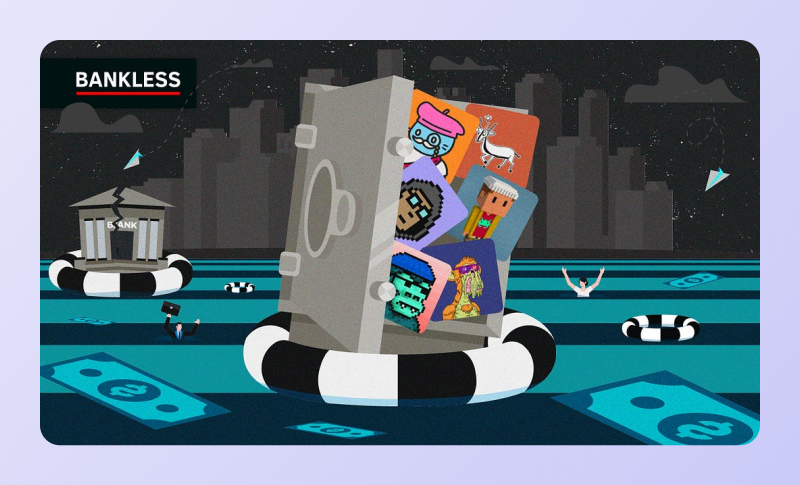
4. NFTs as education certificates: verified and tamper-proof documents
NFTs are also being used to tokenize and certify academic credentials. This is drastically changing the job space by providing employers with a reliable way to check and verify an employee's credentials.
It is also minimizing the fake degree space, and Kenzie Academy, a coding school, has issued NFTs to its graduates representing their educational achievements.
So, anyone can verify the real applicants and offer a better hiring experience for young brains and experts.
5. NFTs as medical records: improving patient data management
Next time you visit a doctor, don't be surprised if your health records are on the blockchain! NFTs can be used to make medical records more secure, accessible, and transparent — no more tiring paperwork or misplaced file — just a seamless, digital experience.
Take the case of MedRec — it uses NFTs to manage patient data, improving accuracy and accessibility. The potential for NFTs in the healthcare sector? Infinite.


Thank you for Subscription!
6. NFTs for architectural designs: easy and safe digital models
Many architectural firms are also dipping their feet into the space of NFTs. They’re using NFTs to represent digital models of their physical designs.
BIG-Bjarke Ingels Group, a Danish architecture firm, released plans to sell digital versions of its architectural designs as NFTs. This improved the transaction speeds by quite a lot and also improved the security for design transactions.
7. NFTs in film distribution rights: reliable acquisition of entertainment contracts
A lot of entertainment media content is being sold as NFTs. As we’ve already discussed, this helps you bypass middlemen and get straight to publishing or selling rights to your content without facing restrictions.
Kevin Smith, an American director, sold his horror anthology "Killroy Was Here" as an NFT with the distribution rights on the Cosmos blockchain-based Secret Network. This allowed him to interact with fans, offer rewards, and even bring a lot of traction to old movies and cult classics.
8. NFTs for event tickets: NFT market and ticket bots
Owning exclusive digital merchandise or memorabilia of your favorite event, stored forever as an NFT, sounds like a dream come true, right? This is how NFTs are revolutionizing ticket sales, combating fraud, and ensuring easy ticket transfers.
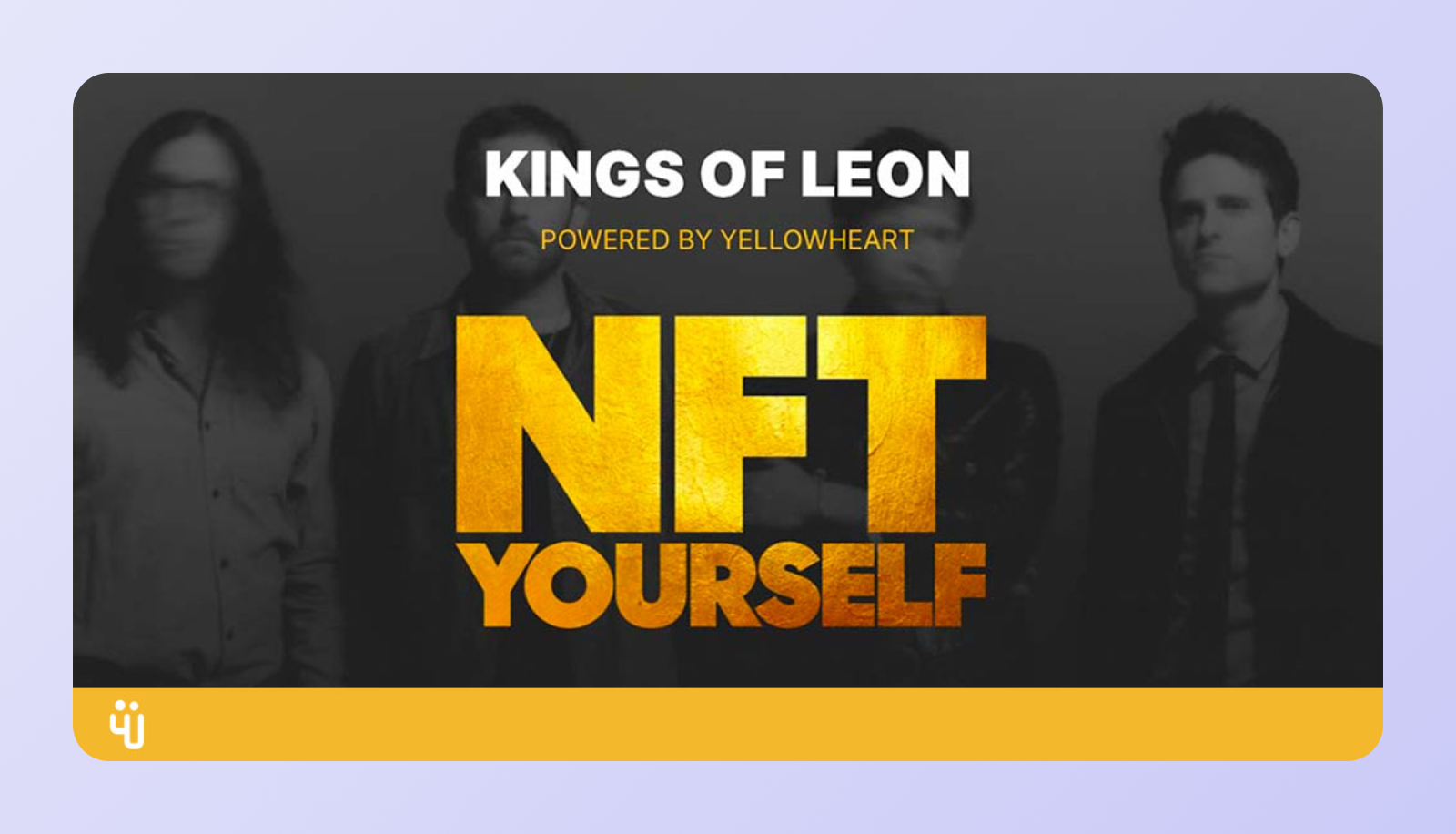
For example, the Kings of Leon concert distributed tickets as utility NFTs, creating a unique experience for fans.
Looking to recreate this magic? Geniusee can help you build an NFT-powered ticketing system for your service. This improves the overall distribution and ensures security and transparency for everyone.
9. NFTs in the music industry: artists and fair royalty distribution
NFTs have created a wave of change in the music industry, empowering artists like never before. Traditionally, artists had to navigate a labyrinth of middlemen, record labels, distributors, and agents who often took significant cuts from the profits.
This ecosystem often left the creators themselves with only a fraction of their work's worth. However, NFTs have flipped this model on its head. Case in point—Grimes. The renowned artist took advantage of the NFT boom to sell her digital artwork directly to her fans, bypassing traditional art and music marketplaces.
This let her save a lot of money that would’ve gone to middlemen and allowed her to make a bigger profit. It's a whole new ball game for the music industry!
10. NFTs in e-commerce: supply chain management on steroids
Many fashion brands are also jumping into the NFT bandwagon and starting to hype up their current lineup with the relatively new technology. NFTs are also shortening the amount of work put into managing inventory and other supply chain management issues by digitizing assets for easier management.
Dolce & Gabbana auctioned nine NFTs representing their Alta Moda collection, which also included the corresponding physical garments.
Nike even patented "CryptoKicks," which are NFTs tied to specific shoes. When a customer buys a pair of CryptoKicks, they also receive a digital representation of the shoe.
This can even evolve to work as a secondary market to trade shoes, clothes, and other items and use them as a customization set in the digital world.
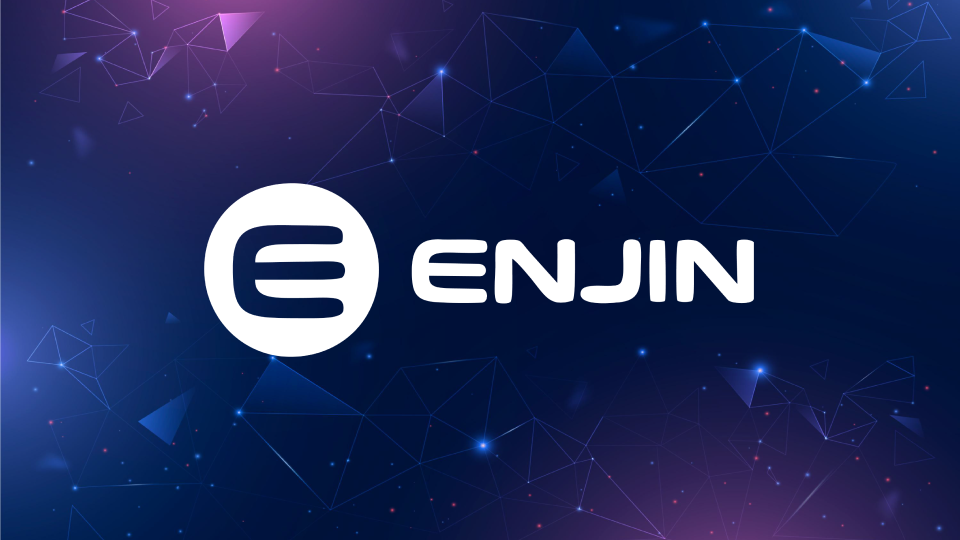
More suggestions for you
NFT Implementation On Enjin: How To Create An NFT On Enjin
Learn the step-by-step process of implementing NFTs on the Enjin platform and creating your own non-fungible tokens.
Explore the articleGlobal brands embracing the NFT revolution
Many international brands are actively engaging with the NFT trend, embracing its potential to redefine their market engagement. The spectrum of NFT adoption stretches wide and is as varied as the brands involved. Here are a few global brands working with NFTs and blockchain technology:
Axie Infinity — leveraging the power of gaming NFTs to revolutionize the world of online gaming. By pioneering the “play-to-earn” model, they're creating a space where players can generate real-world money while gaming.
Bored Ape Yacht Club — utilizing NFTs to create an exclusive digital collectibles club. Each NFT acts as a membership token, granting access to special benefits and events.
Gucci — breaking new ground in the fashion industry by launching a digital fashion NFTs line to create exclusive virtual apparel, tapping into the digital and metaverse trend.
Budweiser — embracing NFTs to create unique digital experiences like limited edition digital art and virtual experiences to increase brand loyalty and foster a deeper connection with their customer base.
McLaren — harnessing the power of NFTs to offer exclusive digital assets and experiences like digital collectibles representing their iconic cars and redefining the fan-brand interactions.
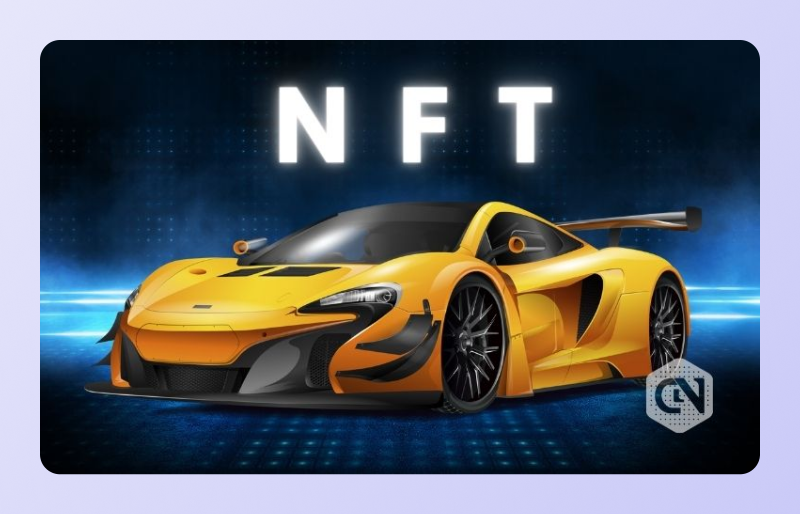
By adopting NFTs to improve engagement, these brands are radically transforming their interactions with consumers. It's clear that NFTs offer a unique platform for brands to connect with their audience in innovative and previously unimagined ways.
Conclusion
From owning digital assets and protecting our identities to managing medical records and revolutionizing event ticketing — NFTs are carving out a whole new digital reality. Not to mention, it also allows you to authenticate and verify your asset without the need for a third-party service.
Stay tuned to the world of unusual NFT cases because if there’s one thing we've learned, the only limit is imagination and maybe your crypto balance.
As we step into this brave new digital world, remember, Geniusee can help you navigate and build exciting NFT and blockchain solutions. This can lead you to the forefront of the digital revolution and make your dreams into an NFT-driven reality.








